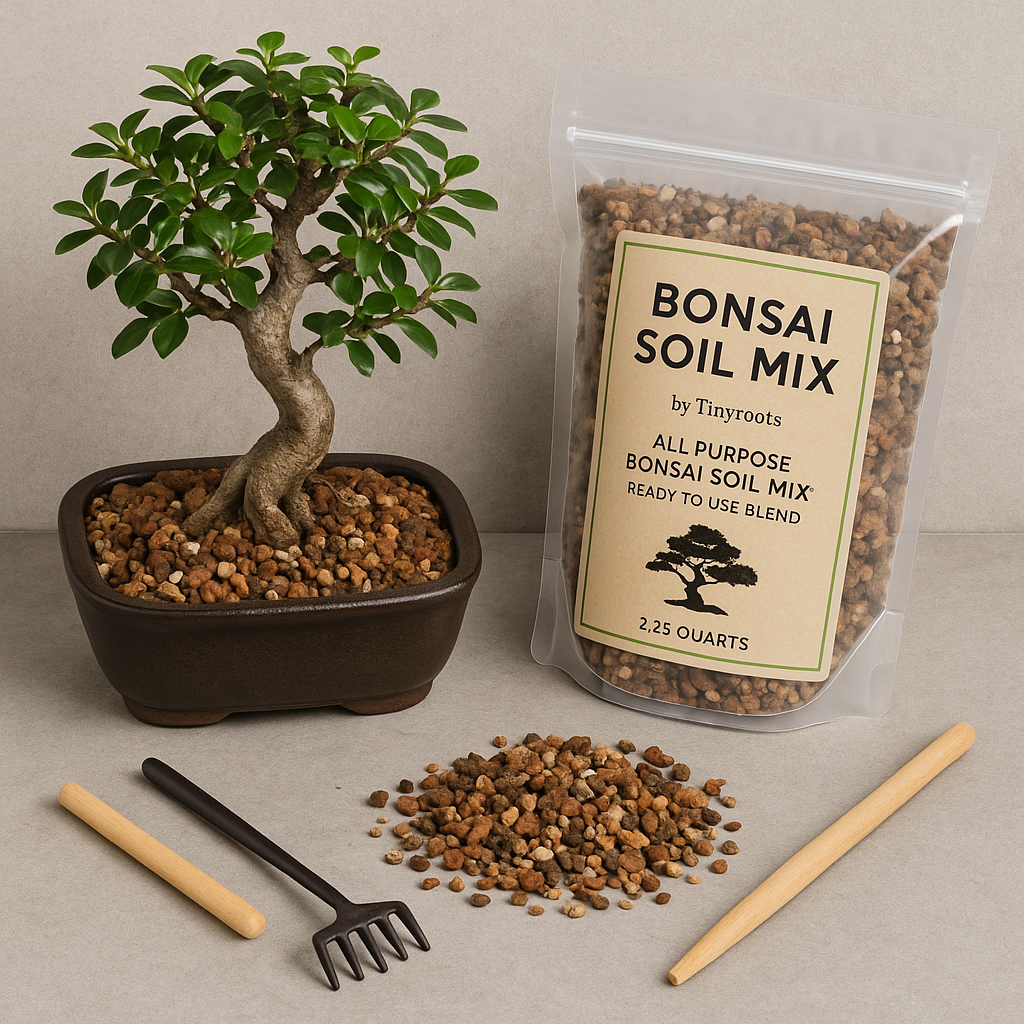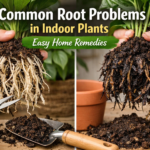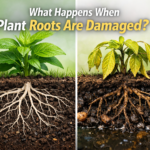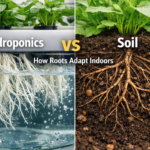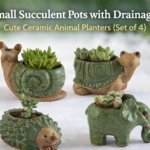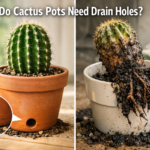Caring for bonsai trees is an art that demands precision, patience, and the right materials—especially when it comes to soil. Unlike regular houseplants, bonsai trees have unique needs due to their shallow containers and miniature root systems. One of the most critical elements for their health and longevity is using the proper soil mix that provides excellent drainage, aeration, and nutrient retention. That’s where the Tinyroots All-Purpose Bonsai Soil Mix comes into play.
Designed as a ready-to-use blend, this soil mix promises to simplify the process for both beginners and seasoned bonsai enthusiasts. With its combination of professional-grade ingredients like pumice, lava rock, and pine bark, it’s tailored to mimic the natural growing environment of bonsai trees. But does it really live up to the expectations?
In this detailed review, we’ll dive into every aspect of the Tinyroots Bonsai Soil Mix—from packaging and composition to performance and suitability across various bonsai species.
What is Tinyroots Bonsai Soil Mix?

Tinyroots All-Purpose Bonsai Soil Mix
- Bonsai Soil Mix by Tinyroots – All Purpose
- Ready to Use Blend,
- Used for All Varieties of Bonsai Trees,
- 2.25 Quarts
The Tinyroots All-Purpose Bonsai Soil Mix is a pre-blended, ready-to-use substrate specially formulated to cater to the unique needs of bonsai trees. This 2.25-quart bag contains a mixture of organic and inorganic components that support optimal root development, aeration, and moisture retention. Unlike general-purpose potting soil, bonsai soil needs to be free-draining while also holding enough moisture and nutrients to sustain small, potted trees for years.
What makes Tinyroots stand out is its professional-grade quality. The mix typically includes ingredients like double-sifted pine bark, lava rock, pumice, and calcined clay. These materials are known for promoting healthy root growth by ensuring good airflow and preventing root rot. This all-purpose blend works well for a wide range of species, including junipers, maples, elms, and tropical bonsais like ficus or jade.
Tinyroots is a reputable brand in the bonsai community and often recommended for both beginners and seasoned enthusiasts. The soil is packed in a resealable, eco-friendly bag that ensures long-term usability and easy storage. Whether you’re repotting a tree or starting from scratch, this product is an excellent option to ensure your bonsai thrives.
Benefits of Tinyroots Bonsai Soil Mix
The Tinyroots All-Purpose Bonsai Soil Mix offers a range of practical and horticultural benefits, making it a favorite among bonsai growers of all levels. Its ready-to-use formula saves time and effort, while the mix itself promotes strong root development with excellent drainage and aeration. Suitable for nearly all bonsai species, this blend adapts well whether you’re growing junipers, ficus, maples, or elms. The soil is clean, low-dust, and packaged in a resealable bag, making it ideal for indoor use. With high-quality materials and a trusted brand name, Tinyroots delivers both convenience and long-term bonsai health.
Key Benefits:
- ✔️ Excellent drainage and aeration
- ✔️ Ready-to-use with no mixing required
- ✔️ Suitable for all bonsai tree types
- ✔️ Promotes strong, healthy root growth
- ✔️ Clean, low-dust, and easy to work with indoors
- ✔️ Eco-friendly, resealable packaging
- ✔️ Professional-grade quality from a trusted brand
Is this soil mix organic?

The Tinyroots Bonsai Soil Mix is not fully organic but includes both organic and inorganic components, offering a well-balanced growing medium for bonsai trees. The organic part typically consists of double-sifted pine bark, which helps with moisture retention and adds a natural element to the soil. Inorganic ingredients like pumice, lava rock, and calcined clay are added to ensure proper drainage, aeration, and long-term structure. While it’s not 100% organic, this combination is ideal for bonsai care, as it mimics the natural environment that promotes healthy root growth, reduces the risk of rot, and supports overall tree vitality.
My First Impressions: Quality, Packaging, and Ease of Use

When I first received the Tinyroots Bonsai Soil Mix, I immediately noticed the quality of the packaging. The 2.25-quart bag is made of durable, thick plastic with a resealable zipper, which helps preserve freshness and prevents spills. It’s compact yet generous enough for repotting one to two medium-sized bonsai trees, or multiple small ones. The front label is cleanly designed and provides enough product information to assure any buyer of what they’re purchasing.
Upon opening the bag, the first thing I appreciated was the lack of dust—often a common problem with cheap bonsai mixes. The soil mix smelled fresh and earthy, indicating good organic content. Each component in the mix—lava rock, pumice, and bark—was visible and evenly distributed. This consistency shows attention to quality control during packaging.
Using it was equally satisfying. The mix poured smoothly, and its texture allowed for easy spreading around bonsai roots without compacting too tightly. Water drainage during the initial watering was excellent. There was no waterlogging, which is a crucial factor for bonsai health. Overall, the product gave off a professional, premium vibe even before putting it to the test with live trees.
How It Works With Different Bonsai Varieties?
One of the most appealing aspects of the Tinyroots All-Purpose Soil Mix is its adaptability across different types of bonsai trees. I personally tested this mix with several species, including a Ficus Ginseng, Chinese Elm, and a Juniper Procumbens. In each case, the soil performed consistently well.
For tropical species like Ficus, which require slightly more moisture, the mix retained just enough water without becoming soggy. The bark pieces in the blend slowly release moisture, keeping the roots hydrated between watering cycles. For temperate trees like Chinese Elm, which require balance between moisture and air circulation, the pumice and lava rocks ensure the roots don’t suffocate, encouraging fibrous root development.
Even for a Juniper, which is extremely sensitive to overwatering, the soil drained quickly and did not hold excess moisture—a testament to the excellent aeration properties of the blend. Over a few weeks of observation, I noticed stronger growth in each of these trees, better leaf color, and an increase in fine root production.
Whether you’re working with a deciduous, coniferous, or tropical bonsai, this soil provides a stable growing medium that supports the long-term health and beauty of your miniature tree.
Who Should Use This Soil Mix?

The Tinyroots All-Purpose Bonsai Soil Mix is ideal for a wide range of users—from beginners just starting their bonsai journey to seasoned bonsai practitioners who appreciate the convenience of a high-quality ready-made mix. Beginners will appreciate the product’s ease of use, as it eliminates the guesswork involved in blending different soil components. Since it’s ready to use straight out of the bag, even those with minimal bonsai knowledge can confidently repot or plant their trees without fear of making a critical mistake.
Intermediate to advanced users will recognize and value the quality of the ingredients. These enthusiasts often understand how vital soil composition is to root health, and they’ll appreciate the consistent particle size and lack of fillers. It’s also a great option for bonsai clubs, teachers, or workshop leaders who need a dependable soil for multiple species in teaching settings.
If you live in an apartment or don’t have access to a garden or soil-blending tools, this product offers a tidy, odor-free alternative that can be used indoors without creating a mess. It’s particularly well-suited to urban bonsai hobbyists who value convenience as much as quality.
conclusion
After testing and evaluating all aspects of the Tinyroots All-Purpose Bonsai Soil Mix, I can confidently say that this product is well worth the purchase, especially for small-scale bonsai care. It combines convenience, quality, and consistency in one easy-to-use package. The blend’s ability to support a wide variety of bonsai species makes it a flexible choice for hobbyists with multiple types of trees.
While it may not be the most cost-effective solution for someone repotting dozens of trees, the quality you get justifies the price point. Plus, with the added benefit of zero prep time, you save effort and avoid mistakes that can come from DIY mixing..
Frequently Asked Questions (FAQ)
1. Is this soil mix suitable for all types of bonsai trees?
Yes, the Tinyroots Bonsai Soil Mix is designed as an all-purpose blend. It works well with a wide variety of bonsai species including junipers, maples, elms, ficus, jade, and more. Whether you grow tropical, deciduous, or evergreen bonsai, this mix provides balanced support for healthy growth.
2. Do I need to mix this soil with anything else?
No, this soil is 100% ready to use straight out of the bag. It has been professionally blended with high-quality materials like pumice, lava rock, and pine bark, so there’s no need for additional components unless you have very specific needs.
3. How much soil does the 2.25-quart bag cover?
The 2.25-quart bag is typically enough to repot 1–2 small or medium-sized bonsai trees, depending on the size of the pots. For larger trees or multiple repots, you may need more than one bag.
4. Does it contain fertilizer or nutrients?
No, the Tinyroots soil mix does not include fertilizer. While it supports healthy root development and moisture balance, you will need to feed your bonsai with a proper bonsai fertilizer according to your tree’s species and growth cycle.
5. Can I use this soil indoors without making a mess?
Yes! One of the great features of this product is that it’s low in dust and very clean. That makes it perfect for indoor use, especially for apartment dwellers or those without outdoor potting areas.

